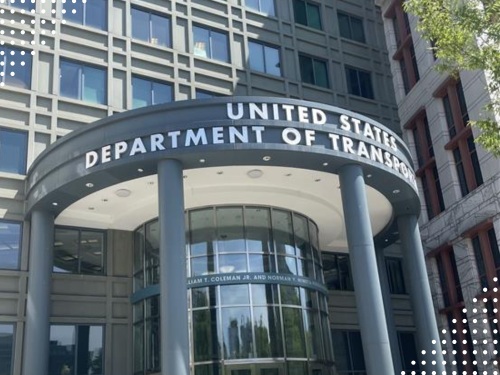As part of its comprehensive strategy to support accessibility across all modes of transportation for all travelers, the U.S. Department of Transportation is providing $27 million to four projects that seek to improve transportation and access for those with physical challenges.
[Above photo by the Georgia DOT]
That funding supports the implementation of Phases 2 and 3 of the Complete Trip – ITS4US Deployment Program, which seeks to help “modernize” the nation’s transportation system to provide safer, more affordable, and more equitable access to opportunities and services for all travelers while reducing adverse community impacts.

“By bringing together public-sponsored and private-sponsored research, the program will enable communities to build local partnerships that develop and deploy integrated and replicable mobility solutions to achieve complete trips for all travelers,” said Dr. Robert Hampshire, USDOT’s deputy assistant secretary for research and technology, in a statement.
“The ITS4US program is a critical step towards reducing inequities across our transportation systems and the communities they affect,” he added.
In 2020, the U.S. DOT selected five awardees for Phase 1 of its ITS4US program. The three-phased multimodal program identifies ways to provide more efficient, affordable, and accessible transportation options for underserved communities that often face greater challenges in accessing essential services, including people with disabilities, older adults, low-income individuals, rural residents, veterans, and limited English proficiency travelers.
Among the four awardees for Phases 2 and 3 is the Georgia Department of Transportation, which is receiving over $8 million for its “Safe Trips in a Connected Transportation Network” or ST-CTN project.

The Georgia DOT – which leads this project with support from the Atlanta Regional Commission – said its ST-CTN project will provide Gwinnett County residents with detailed information and step-by-step navigation tailored for users’ specific needs along with a range of other features geared to improve trip efficiency and safety.
This concept is composed of an integrated set of advanced transportation technology solutions including connected vehicles, transit signal priority, machine learning, and predictive analytics to support safe and complete trips – focused on improving accessibility for those with disabilities, aging adults, and those with limited English proficiency.
The ST-CTN system includes a mobile application that will provide users with the ability to create a personalized trip plan with information regarding the navigation of physical infrastructure, the ability to provide safe alternative trip routes when encountering unexpected obstacles, and the ability to ensure user safety throughout the trip, the agency said.
State departments of transportation across the country currently support a host of varied transportation service offerings for disabled individuals.

For example, the Illinois Department of Transportation provides grants to municipalities and local governments, as well as nonprofit agencies, to support paratransit operations serving senior citizens and individuals with disabilities.
Through its Consolidated Vehicle Procurement program, Illinois DOT purchases accessible paratransit vehicles on behalf of eligible recipients using various federal funding sources.
“Public transportation is an essential service throughout the state in rural, suburban and urban communities,” explained Omer Osman, Illinois DOT secretary, in a statement.
“These grants – and the paratransit vehicles they provide – are an important part of our continued efforts to ensure everyone has safe, equitable access to the transportation they depend on,” he said.
 Top Stories
Top Stories
USDOT Makes $1.5B Worth of BUILD Grants Available
December 19, 2025 Top Stories
Top Stories

